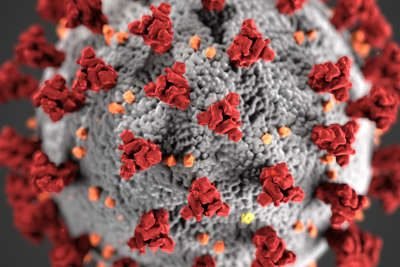The CDC recently recommended the following updated mRNA COVID-19 vaccine boosters to help restore protection that has waned since previous vaccination and target more transmissible and immune-evading variants:
- The Moderna bivalent mRNA COVID-19 booster is authorized for people 18 and older.
- The Pfizer bivalent mRNA COVID-19 booster is authorized for people 12 years and up.
These boosters are referred to as “bivalent” vaccines because they target both the original strain of COVID-19 and the Omicron BA.4 and BA.5 subvariants currently circulating in the United States. These updated boosters will help better protect us against these and future variants that might be closely related to Omicron.
Everyone who is eligible to receive the bivalent booster – including those who are moderately and severely immunocompromised – are recommended to receive ONE dose of the booster regardless of how many doses they have received previously. Those eligible may receive the updated booster if at least 2 months have passed since their last COVID-19 dose (either the final primary series dose or the last booster).
The original (monovalent) mRNA COVID-19 vaccine boosters are no longer authorized for people aged 12 years and older and can no longer be given to them, even if they had not previously received a monovalent booster dose. Children ages 5-11 should still receive the monovalent booster (at least 5 months after their second dose).
Routine Childhood Immunizations, Seasonal Influenza, & COVID-19 Vaccination can be co-administered
COVID-19 disrupted both in-person learning and routine well-child visits for many children. As a result, tens of thousands of children and adolescents have fallen behind on receiving recommended vaccines.
Timely vaccination is critical, as immunization schedules are designed to provide children with immunity early in life before they may be exposed to life-threatening diseases. Not only do delayed or missed vaccines leave children vulnerable to illness but when vaccination rates fall even just a little, vaccine-preventable diseases can spread easily.
We know from studies conducted throughout the pandemic that receiving a COVID-19 vaccine at the same time as routine immunizations is safe. If multiple vaccines are due, giving more than one vaccine at the same visit is important because it increases the probability that an individual will be up to date with vaccines.
In addition, with both influenza and COVID-19 viruses circulating, getting both the Flu and COVID-19 vaccines is important for prevention of severe disease, hospitalization, and death. CDC recommends health care providers offer influenza and COVID-19 vaccines at the same visit, with each dose administered in separate limbs.

